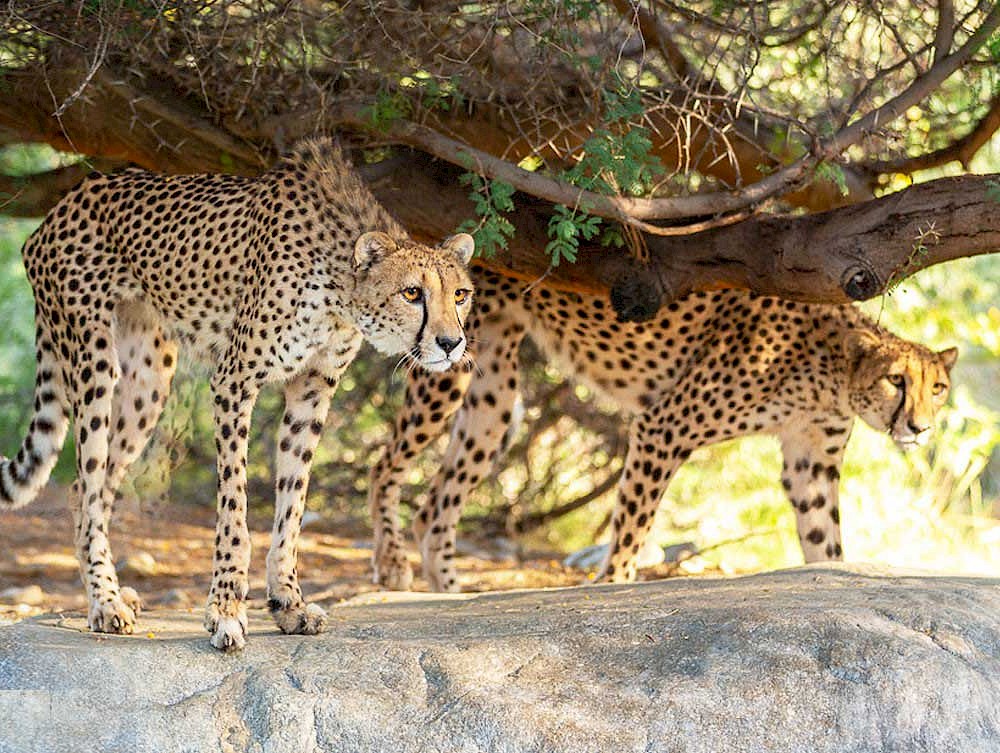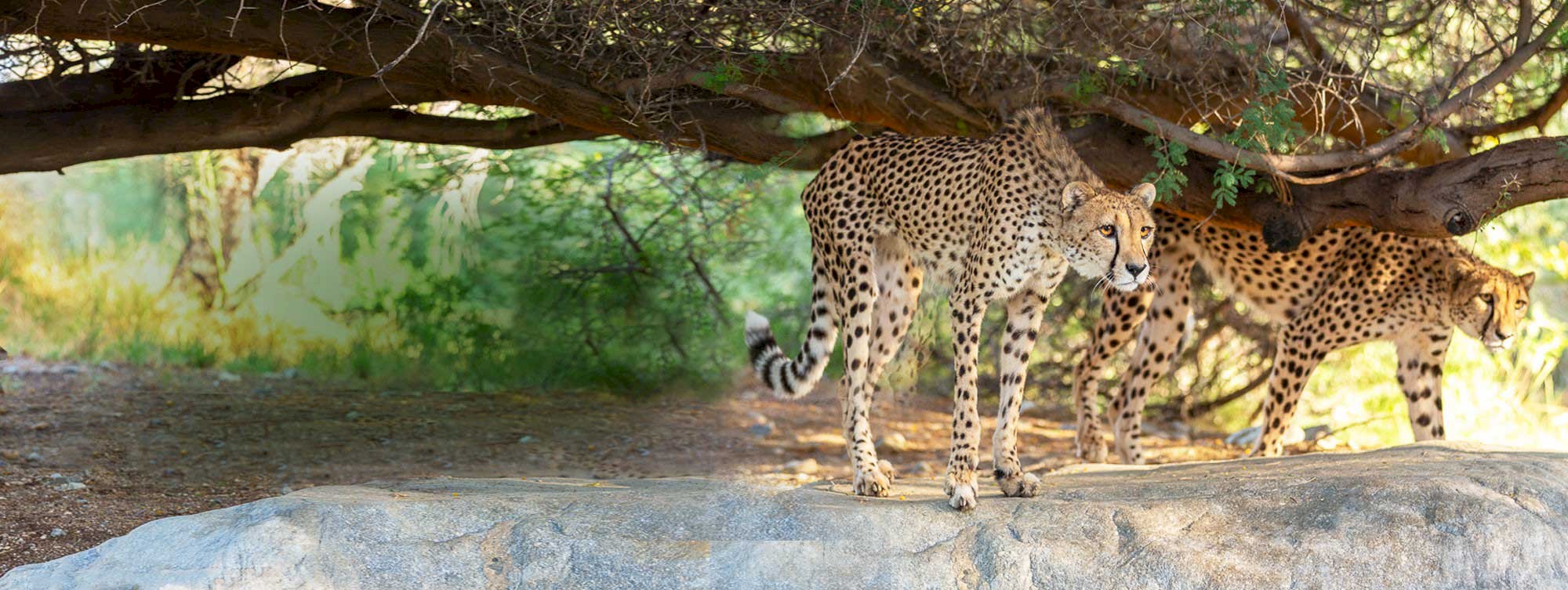Training Conservation Leaders in Africa
October 25, 2021
I am fortunate to have received a second Fulbright Specialist Award from the US State Department! Getting one is a great honor and receiving a second only accentuates that feeling. This is a great reflection of the excellent conservation work that we do here at The Living Desert and can only help to further increase our standing in the world of conservation.
My first Fulbright award was to India to work with the Applied Environmental Research Foundation. While in India, I worked with their staff to build their scientific skills in both natural and social sciences and particularly in data collection and analysis. That was for 6 weeks in 2018 and was an amazing experience. There are many blogs that you can access about my time there.
This second Fulbright Specialist award is to work with the Southern African Wildlife College (SAWC) to help with developing an online Diploma in Natural Resource Management. This course has the potential to dramatically increase the reach and impact of the SAWC in training the next generation of natural resource managers in protected areas across Africa.
The ambitious goal of SAWC is to annually train several hundred land managers across 16 countries in Southern Africa. My 22 years of teaching conservation online were the reason that I was brought in to help SAWC.
Originally, the three-year Diploma was to be entirely online for the first two years, with an exclusive focus on theory. The third year would be in-person where the theory was applied at the SAWC grounds to build skills. During the ten days there, I met with 15 or so people and interviewed them each to determine their priorities for the Diploma.
After many discussions, there were a few changes that I suggested that all involved agreed were the best way to go forward. First, due to internet and data bundle access, all materials for years 1 and 2 would be delivered to the students in some form ahead of time, like a USB drive, bulk download, or a comparable medium. Second, all required curriculum delivery would be completed as the students have time to do so. Third, the first two years will also include skills-building components using project-based learning that achieved work goals that the student or their boss needed to be met.
My suggested innovations will tightly pair idea acquisition with the application of these ideas to real-world problems in every module in the class. Additionally, they will answer these problems in a socio-cultural ecosystem with which they are already familiar. The supervisors of the participants could even assign questions or problems that they need answering.
Before I left the College, it was decided that the College team would refine and implement one of the modules - likely the first of the series of 11 - early in 2022. The students, the faculty, and the products would be evaluated by the College during and after the module. The evaluation will enable the College to improve the approach further, in combination with my second trip to SAWC. I will be there in Spring 2022 for at least a part of the second test module and we will be able to evaluate and integrate the best practices into an approach that will be used for the online modules in the first two years.
This first trip to get to work with the SAWC faculty and staff was wonderfully productive and fruitful. The Southern African Wildlife College is a world leader in training rangers and land managers. I feel fortunate to have been able to work closely with them and look forward to sharing even more of the good work we do here at The Living Desert!
Did You Know...
- The Southern African Wildlife College (SAWC) trains over 1,000 rangers from protected natural areas across the 16 countries that make up the Southern African Development Community.
- SAWC is based on the Timbavati Game Reserve, which is directly connected to Kruger National Park, with no fences between them, allowing rhinos, elephants, and all the other animals from Kruger to roam around the College.
- The SAWC and the reserve on which it is based is only one of the 20+ privately owned reserves that have dropped their fences, adding an additional 1,328 mi2 to the 7,576 mi2 of conserved areas in Kruger National Park.
- Altogether, the resultant Greater Kruger Protected Area totals to 8,904 mi2 - an area almost the same size as Connecticut, Delaware, and Rhode Island added together!









